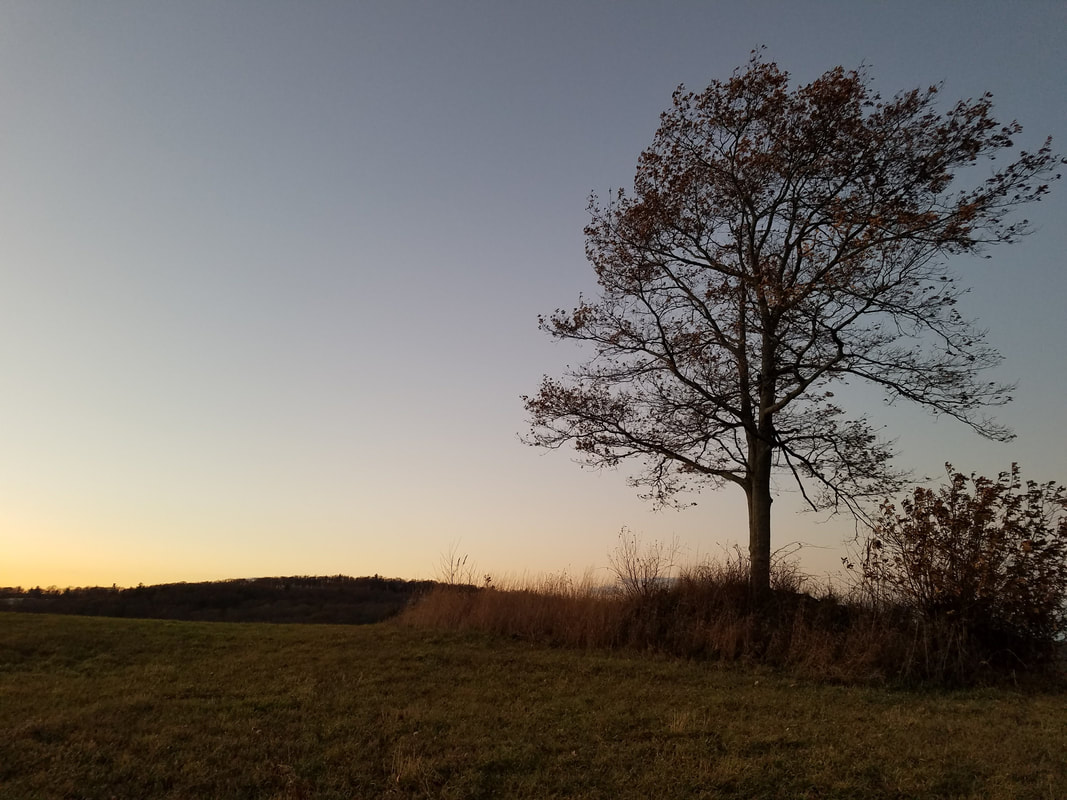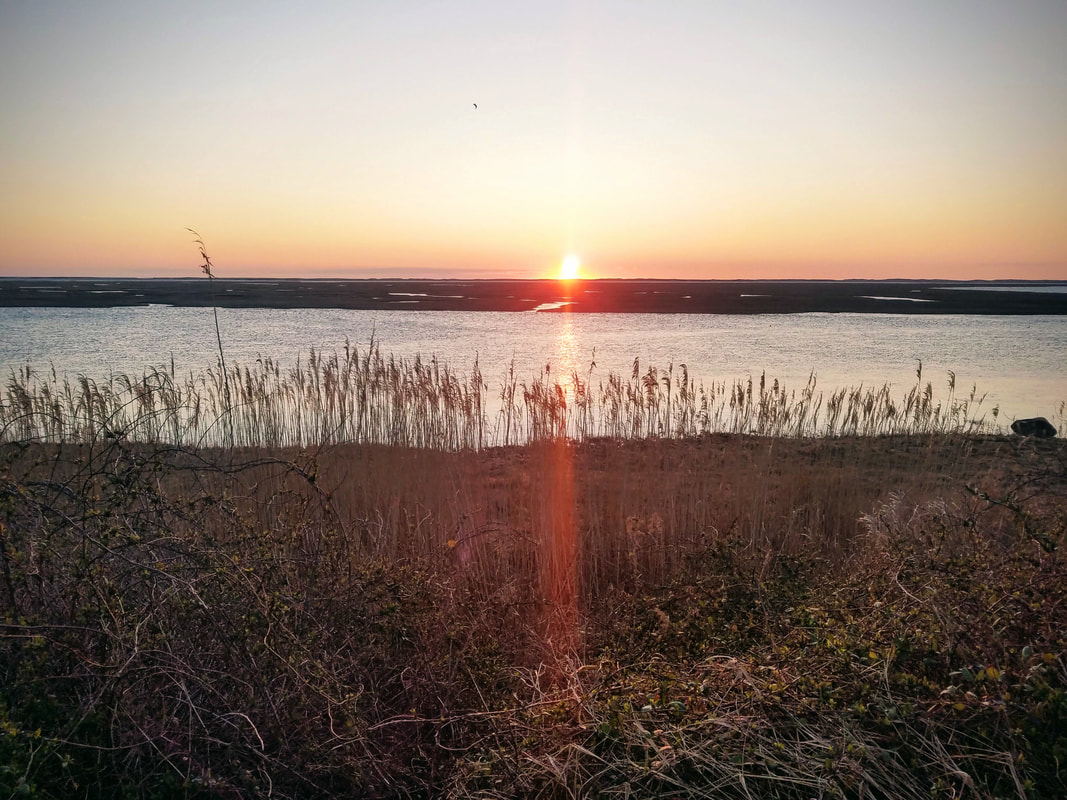In the wake of sad and challenging news, like learning about the death of George Floyd at the hands of police officers in Minneapolis, the thing that helps me gain a sense of perspective is mindfulness.
I need a quiet place to connect with my sources of inspiration, and to ground myself in restorative powers: mostly nature, but sometimes writing. By mindfulness, I mean stopping to think and to feel and to actually connect with what is coming up inside of me. It is a chance for me to catch my breath and hopefully respond from a place of authenticity and heart.
Mindfulness like other contemplative practices still holds a degree of exoticism in our go-go, reflexive lifestyles as North Americans. Our first reaction is to react; to do something; to rail against injustice; to decry our nation's history of racism; to lambaste anyone with a differing view point than our own; and finally, to ride roughshod over the carcasses of our enemies (or simply the ignorant) fully convinced of our own, unique brand of righteousness.
But for me, it is terribly important that I stop and reflect, and feel my feelings, so that I might better know which feelings are my own and which ones are seeping in from the outside.
I choose mindfulness because I want to make sure that my feelings, especially my worries and concerns are in fact my own. I want to know that the anxiety that I might feel is not a stowaway, or some other unbidden guest from places outside of myself. It is all too easy to get stirred up by our surroundings. None of us are immune to herd mentality. That is not to say that a concern is only a concern if it is my own exclusively, or that it has to impact me directly in order to be valid. However, it is important that I take on what I can bear, and not too much more. It is important to know what is my own, and what is not. That being said, I would not be fully human if I could not empathize with the suffering of those around me, both known and unknown to me, and those very far away, in very different circumstances.
In the wake of the unfortunate, tragic and horrifically sensationalized death of Mr. George Floyd, on the streets of Minneapolis, at the hands of police officers; my heart goes all the way out to all who knew and loved him.
Words could never fully capture the depth of pain and loss they must all be feeling right now. I imagine that Mr. Floyd comes from a place that is probably well acquainted with heartbreak and despair, and I am saddened that his loved ones now have to take on one more burden, and a very public one, to their, already, unfair share of suffering. My heartbreaks knowing that whatever grieving process Mr. Floyd’s loved ones will have to undertake is now horribly complexified by the unrelenting national attention, the rioting in the streets, and the social distancing protocols of COVID-19. This situation sucks in every conceivable way.
Yet, it still feels too soon for me to offer any other real comment on what has taken place in Minneapolis. Minneapolis is a city I have enjoyed visiting in the past, a real jewel of place in the upper midwest. And, it is a place where I found the people to be exceedingly welcoming, friendly, with a vibrant global outlook. But, I don’t know the place in any real sense, and I have no real connection to the people involved. Based on the images and videos on social media and the 24 hour news cycle it appears that a man met his untimely death, in the latest example of either police incompetence or police maleficence. The whole thing seems grossly out of control from any vantage point.
Reading this dispassionate recounting from a black man, (me) about another black man, (the deceased Mr. Floyd) who was subject to police brutality, might come as a complete surprise to some. One might expect more anger, outrage, or more despair, but it is hard for me to summon those feelings right now. I am not numb. I don’t believe I have become desensitized to violence visited on black people. I feel sad, I feel compassion, I also feel calm. These are the feelings that come up for me. Others might feel differently, and that's ok.
My concern is that each person sits with their feelings whatever they are, and that they speak a truth that is theirs -- authentically. I don’t want to be manipulated in the social media frenzy that has erupted. The social media outrage does not feel quite like my own outrage, and I see no point in adding fuel to that fire.
Social media tends towards manipulation and to a large degree we are complicit in ceding control of our emotional lives to dark (opaque) forces and algorithms with many hidden agendas online. Hysteria, rage, outrage, terror, defensiveness, and helplessness are all as contagious as any virus we might wish to protect ourselves against. These feelings have a long history of use for nefarious political purposes, as propaganda for agitation. If we are made fearful and anxious all the time, those feelings will take us over. They will overwhelm our sense of self, and our sense of direction. Then those who wish to divide and control us will have an easier time doing so.
I want my feelings to be my own, and to not come in from the outside. And, to preserve that sense of personal agency, the best response for me right now is to feel my feelings of calm and also sadness, and to share those feelings with anyone who is interested in hearing about them.
To say that George Floyd’s death at the hands of police officers is a horrific event is to overstate the obvious.
To say that George Floyd’s death at the hands of police reopens old wounds, or to say that his death has exposed all of the modern day fault lines at the intersection of race, class, access to education and employment opportunities, seems incredibly unoriginal.
There is a lot of that sort of chatter, grandstanding, and make believe outrage going on right now. All of it seems wasteful and unnecessary and exhausting to me. No one will be surprised to hear what all know to be true, that inequality is real, and that communities of color are at greater risk for violence of all kinds. Knowing this, we can stop sharing the videos and the news clips, and the opinion pieces (including this one) because we already know what it is.
At this point the suffering of people, especially black people, has taken on a voyeuristic, porngraphic quality, in the way it is being shared, gazed at, commented upon, by all people, and I’d rather see less of it, for my own well-being.
So, my reaction to all of this, at this time, is no reaction. What has happened has happened.
We all want to do something, we all want answers, and maybe solutions. But the answer right now might be to sit with the questions (these are not new questions either), but most of all, to mourn this tragically sensationalized loss. As I mindfully sit with what is coming up for me, in terms of my feelings, I encourage you to do the same.
If you want to do something, be mindful of what you share online. In your sharing ask yourself, as ancient and modern teachers have taught; is it true, is it kind, and is it necessary. That last part about it being necessary is the most important. So much of what we are seeing is noise, it is loud banging on the pots and pans for attention, and furthering the manipulation that seeks to drive the wedge that already exists in this country even deeper. We would all benefit from less noise, and more quiet and spaciousness to truly connect and feel our own true feelings. It might be time for a Social Media Sabbath.
And, for those who are wondering about me, I don’t need anything other than space to breath, reflect and mourn, as best I can with the loved ones of George Floyd.
I think you need to do the same thing too.


 RSS Feed
RSS Feed